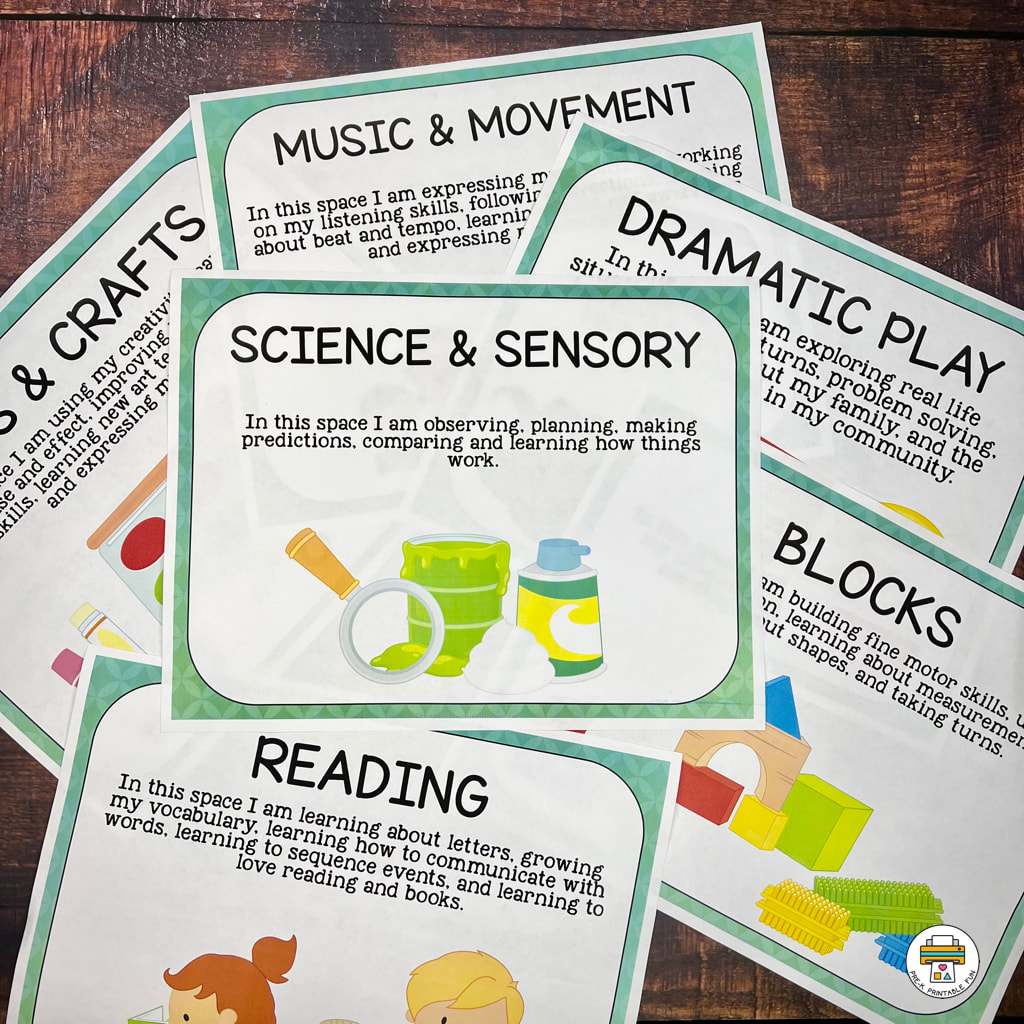Free Preschool KWL Charts
Many educators are familiar with KWL (Know, Want to Know, Learned)
charts to some degree. Perhaps you already use them in your teaching approach, used them as a student, or became familiar with them somewhere along the way. This approach is easy to learn and implement in any learning environment with children of all ages! Keep reading to learn more about implementing KWL charts with early learners, and and be sure to download your KWL Template below to use in your planning.
KWL charts support connections between instructional method and goals, and student interests and needs. There are many benefits to using this simple approach with young children.
For educators, KWL charts help to organize the curriculum and support individualization in lesson plans and activity invitations. This results in children getting more of what they need in an effective way. For students, KWL charts are an opportunity to communicate wants, needs, and expectations for learning in the program. This creates a desire to learn and ownership over learning for students.
One of the wonderful things about this tool is that it can be used with many different types of curriculum and learning environments.
KWL with your Themes
Regardless of approach, curriculum for young children typically uses themes, or topics of study, as a catalyst for teaching. Using themes keeps children engaged and provides a framework for learning.
After determining the theme, educators can then work on picking out activities and gathering materials. Starting with a KWL chart helps educators with this second step. I KNOW...
The K in KWL stands for I Know; in this first step educators are determining what students already know about the topic. This step can be done informally during daily activities or it can be a planned part of your routine before beginning a new theme.
Talking about the theme ahead of time helps children learn to plan ahead and organize thinking. Learning what children already know helps educators understand where children are at. When children are describing what they know, teachers can begin to think about how to tie this information into lessons. **Teacher Tip: Children may state inaccurate facts; writing down what children say, regardless of accuracy, is the objective in this stage. When a child says something inaccurate be ready with a response such as "That's interesting, I want to learn more about that" or "I've never heard that before, I can't wait to explore that next week." I Want to Know...
The W in KWL stands for, I Want to Know; in this second step you're learning more about what the children are interested in for this theme. This step further helps teachers form their lesson plan and individualize learning.
**Teacher Tip: If children are not generating ideas try using the first column to spur thinking, for example: "Mallory knows T-rex had a lot of sharp teeth, I wonder what else we could learn about what dinosaurs looked like?" Individualization: If a child is not interested in the theme be sure to ask them what type of activities they are interested in. If they love puzzles then perhaps you could include new dinosaur puzzles. If the child states they would rather learn about cars, teachers can take note and be sure to put out a few car themed books and activities as well. The themes are meant to engage children, this step in the planning process helps teachers know what to expect for engagement in the theme. I Learned...
Finally the L in KWL stands for I Learned; this final step brings the theme to a close. This step is important for children to work on recalling information and understanding that the topic of study is changing. For educators this step is important for gaining an understanding of what children learned from the unit and what was important to them about the unit.
Using KWL Charts for Lesson Planning
Now that there is an understanding of where children are at and what they want to learn; it's time to gather your themed materials and lesson plan! Use the information on the KWL chart to begin forming your lesson plan. If you have many theme related materials you can sift through them and begin deciding which ones will be needed.
Having materials available for review, or a materials list, helps further organize lesson planning. This is also a good time to review which materials may need to be replaced, determine new purchases, assemble printable activities, and place books on hold at the library. Individualize Activities
KWL charts are a wonderful tool for individualizing lesson plans!
While gathering information for the KWL keep note of which student contributed each statement, this can easily be done using initials or sticky notes. This information can be utilized for individualizing lesson plans and for assessments. For example: Mallory stated she wanted to explore flying dinosaurs. Adding Dinosaur Pattern Block Mats that feature a flying dinosaur may make working on fine motor development more enticing to Mallory.
Individualizing lessons also requires an understanding of the goals for each child.
Use the KWL charts along with Assessment information to ensure academic goals are reached. For example: A review of Liam's assessment shows he is needing more support with uppercase and lowercase matching. Looking at the KWL chart shows he is also interested in fossils and skeletons. Knowing this information, I can set out this Dinosaur Fossil Letter Matching game to encourage him to work on letter matching. Final Steps
Use your favorite lesson planning resources, including the ones that can be found on my FREE Lesson Planning Pages, to finish filling in your lesson plan!
Once the lesson plan and KWL are complete, post it for parents or keep handy for easy reference. Consider keeping the lesson plan and KWL chart for future review during child assessments, program review, and theme planning. Once the theme is over make notes on the back of each about what worked and what didn't. Get your free KWL Charts below:
|
What can I help you find?
Become a MemberGet Free
|
Learning Centers
Preschool Learning Centers are commonly referred to as Preschool Centers, or Learning Spaces. These are activity areas dedicated to a specific type of of play and exploring a variety of topics and activities. Download our Free set of Center Signs!
|
Site
|
|

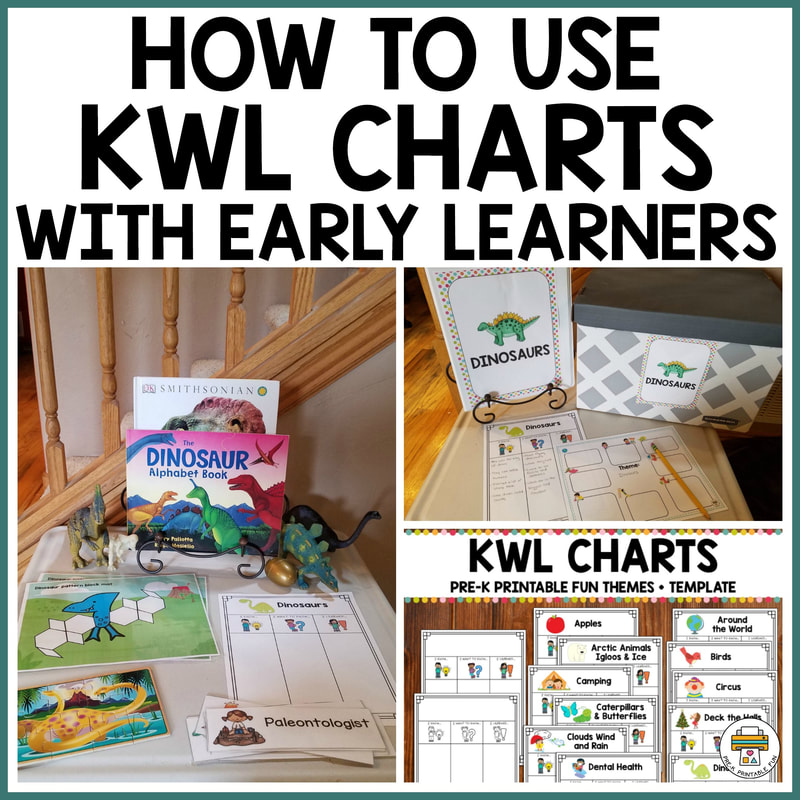
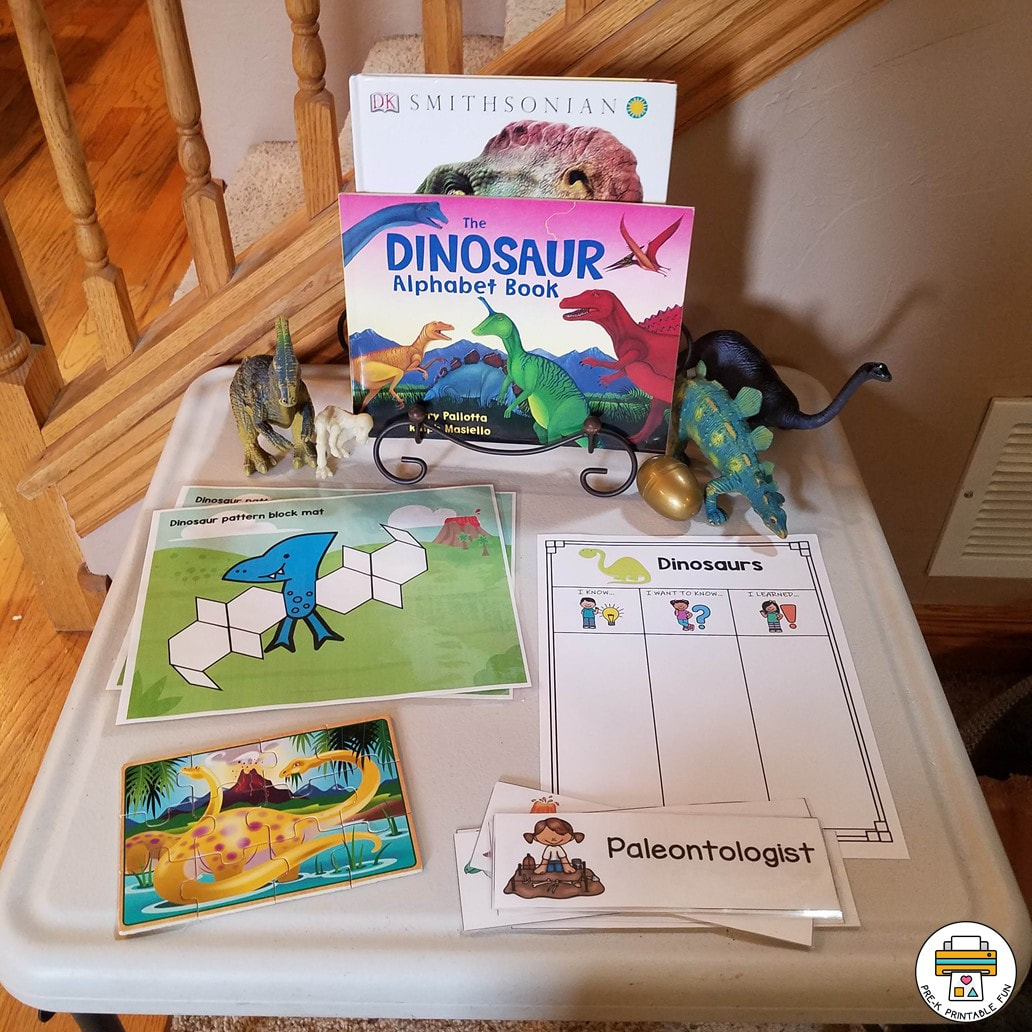
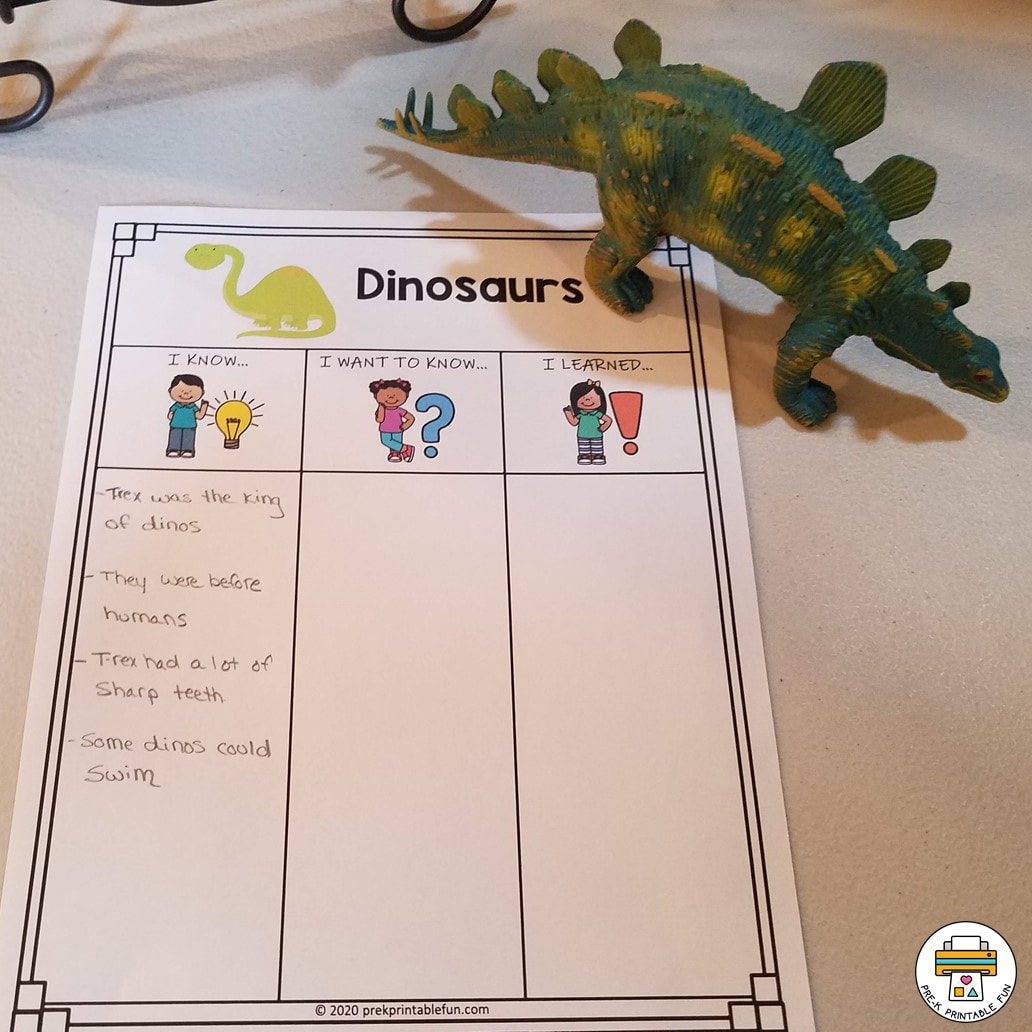
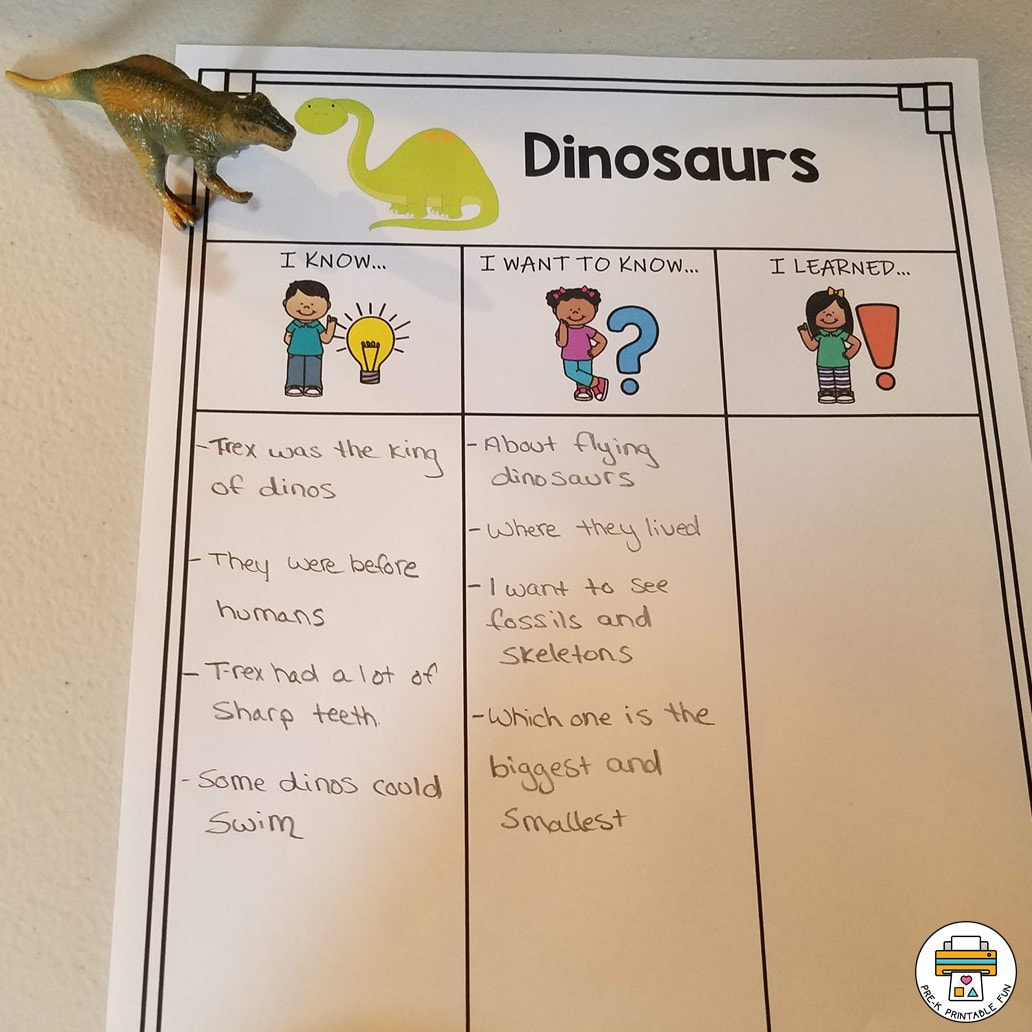
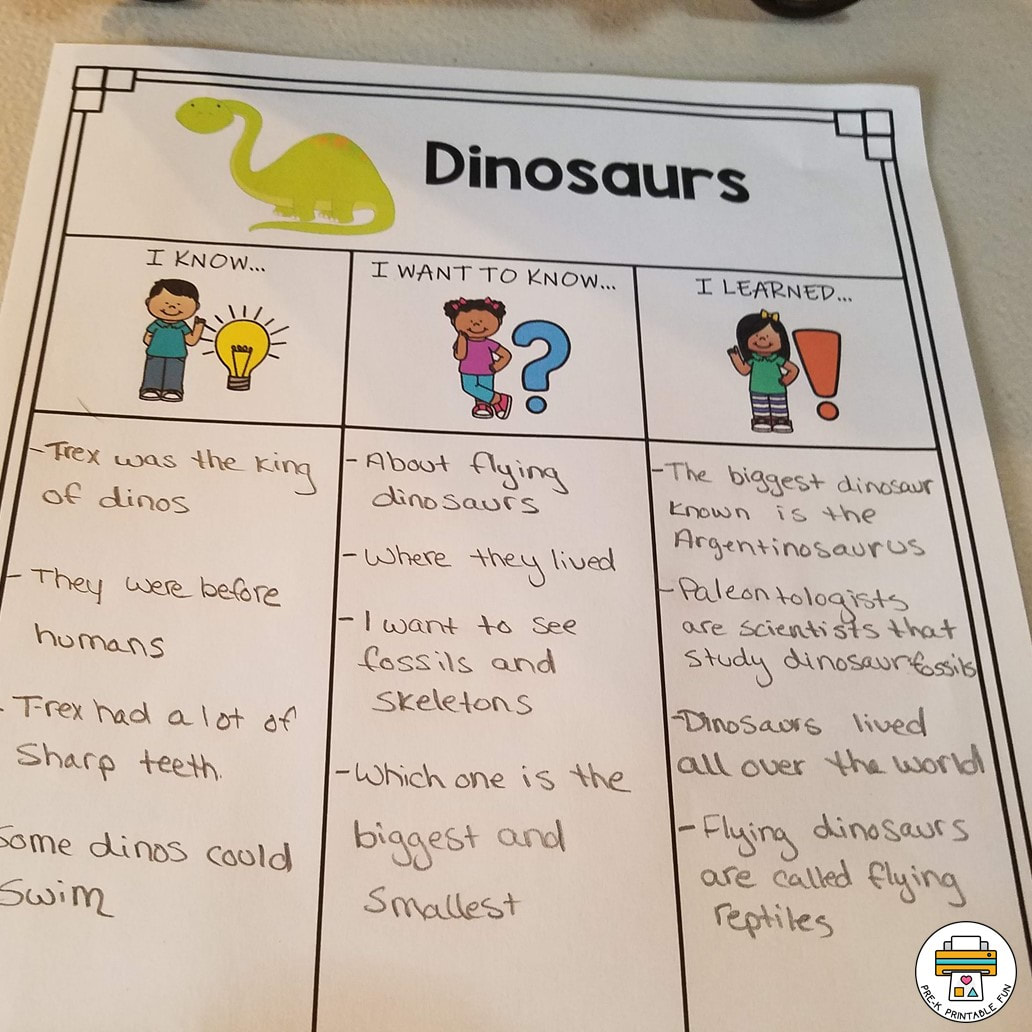
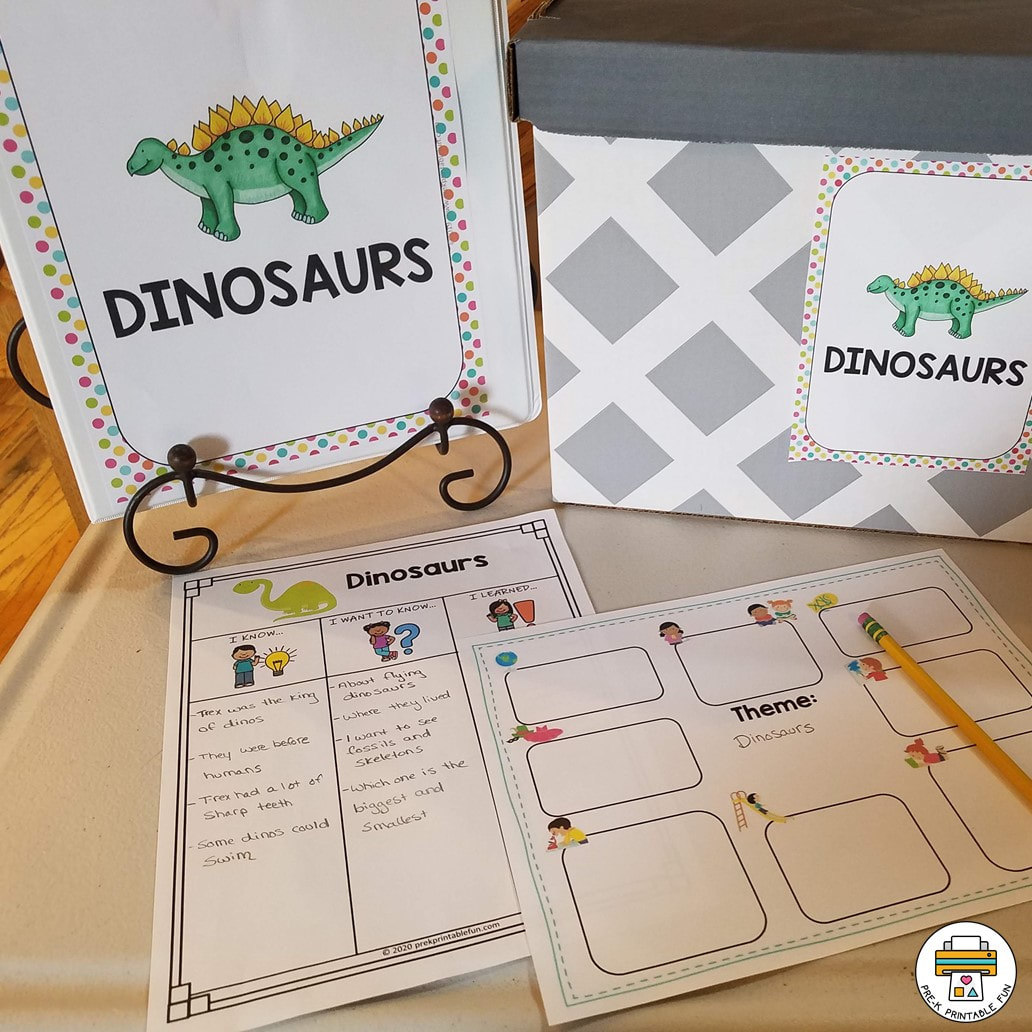
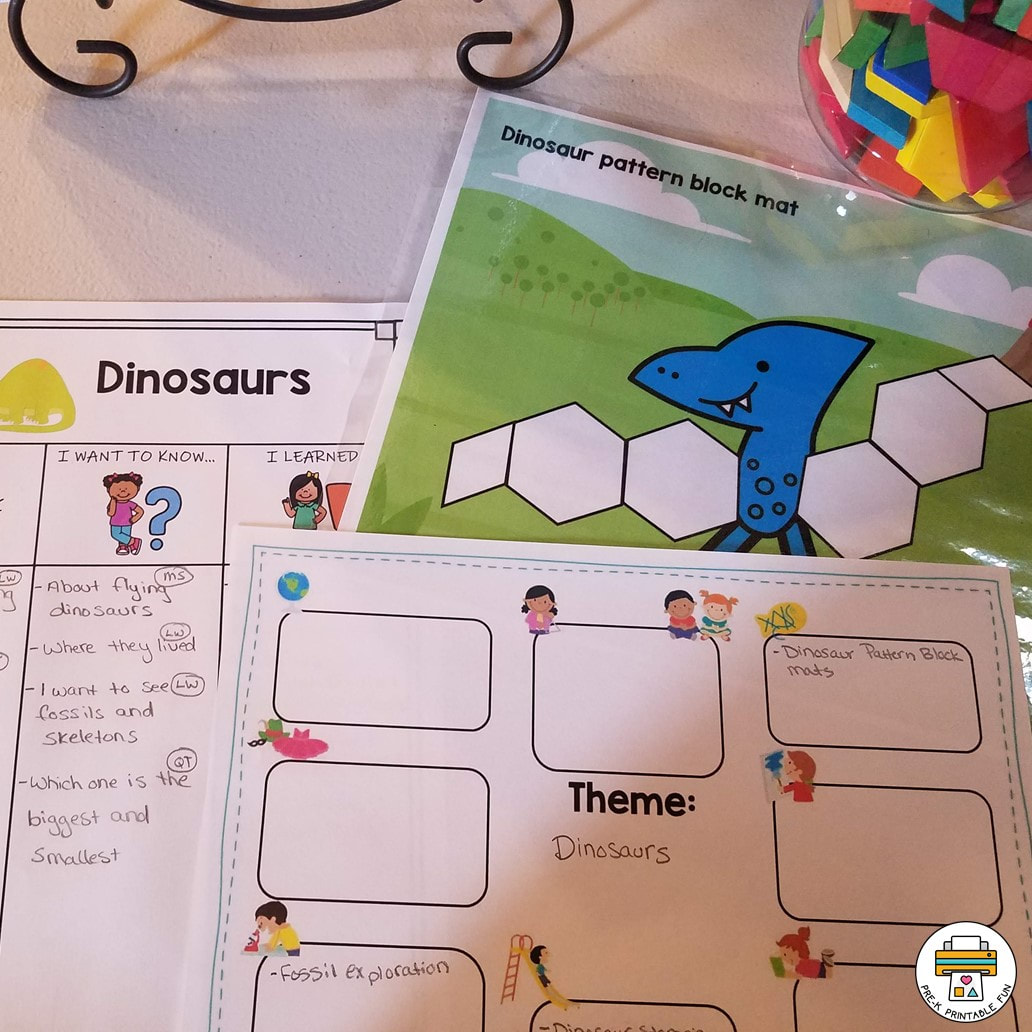
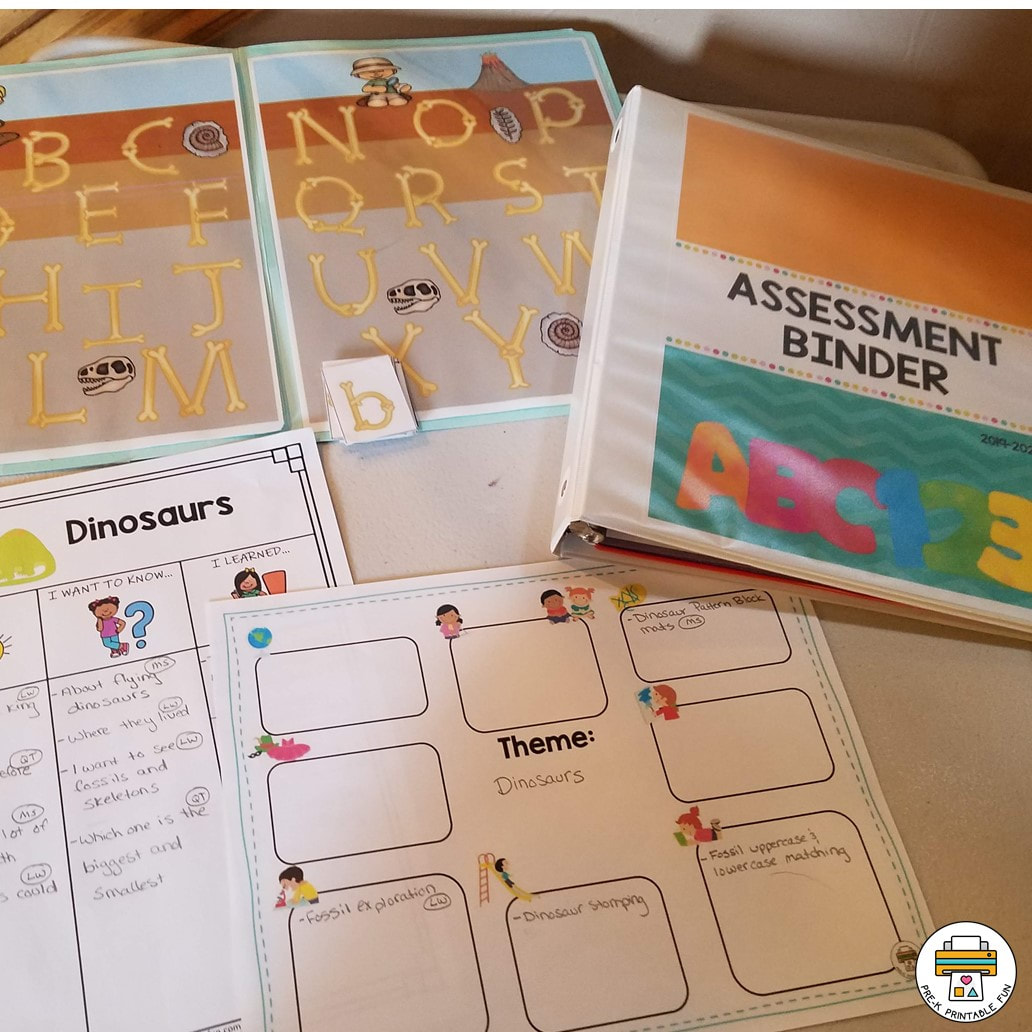
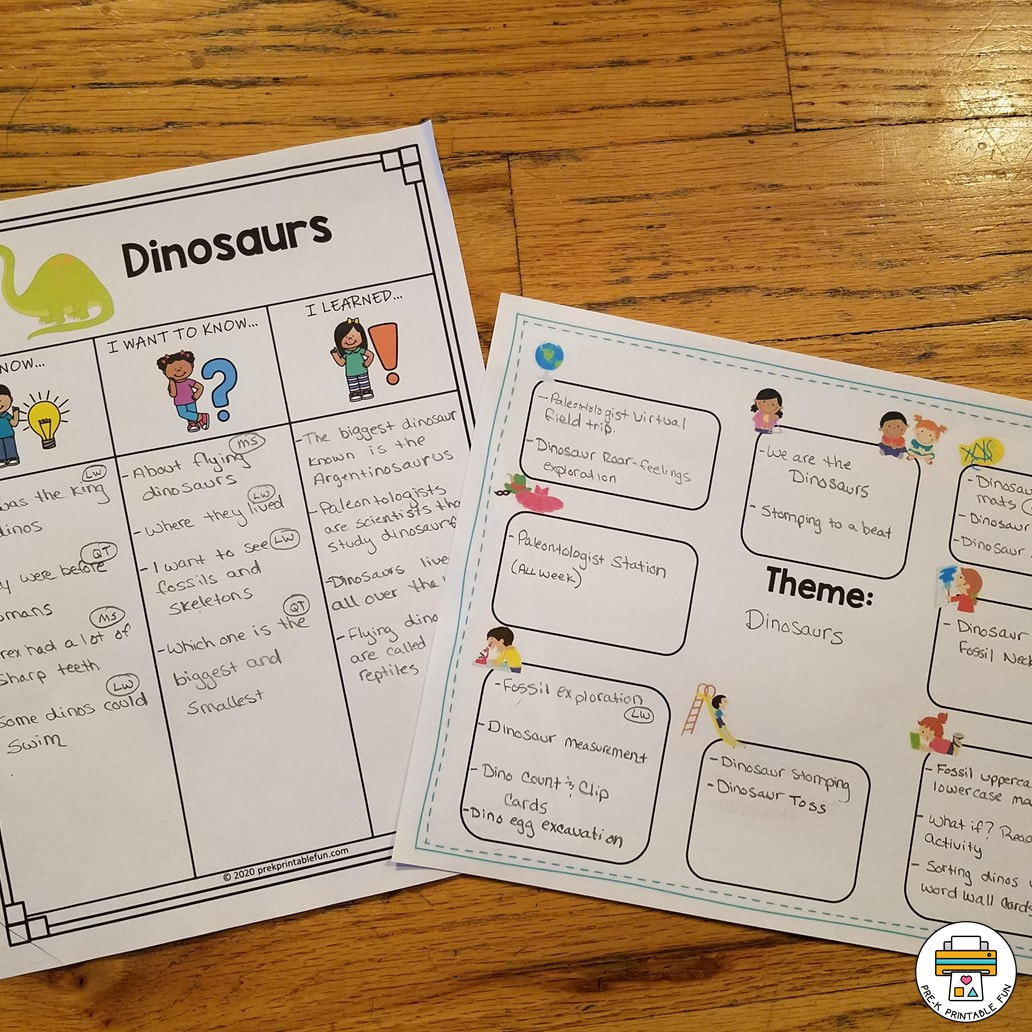
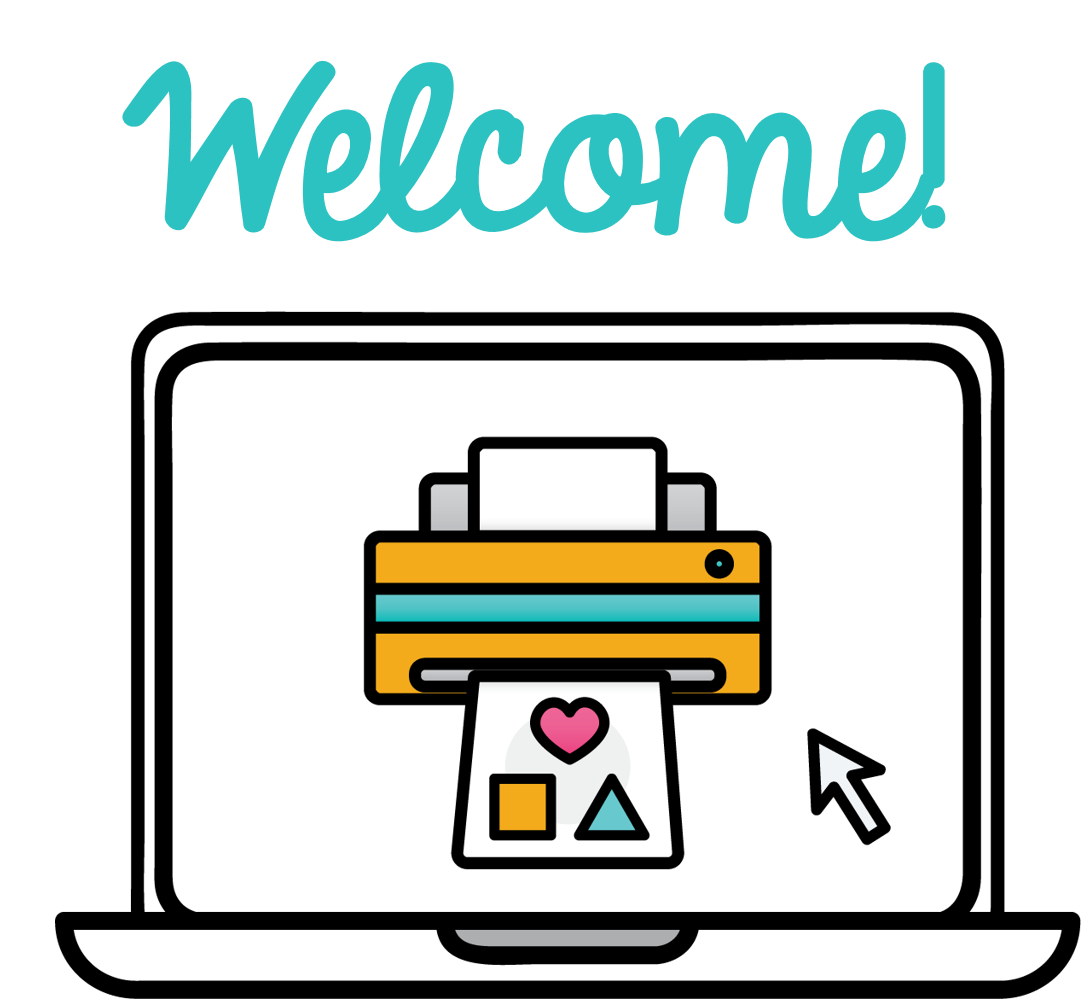

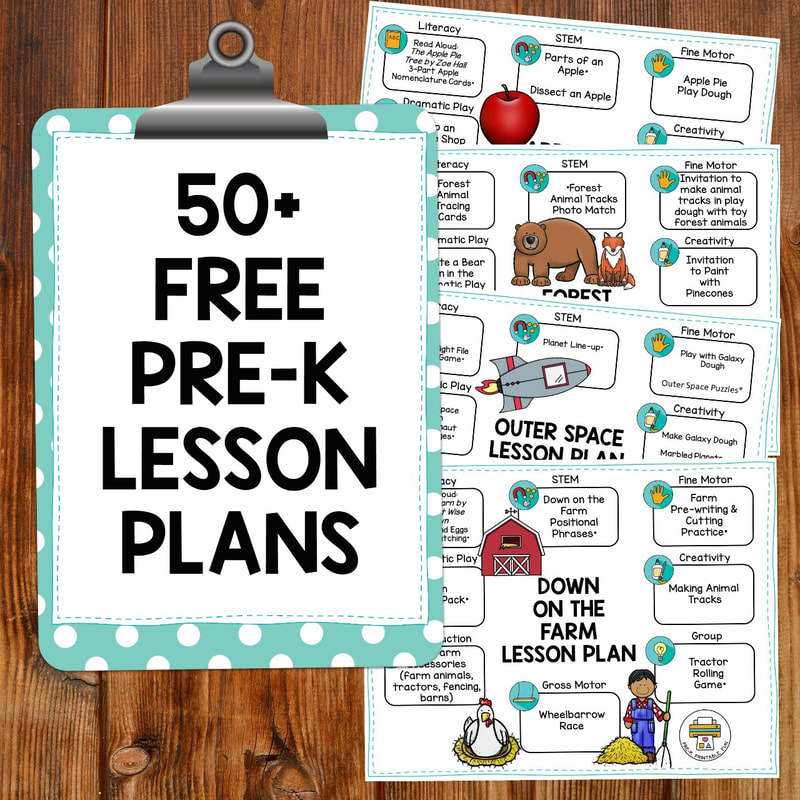
 RSS Feed
RSS Feed
